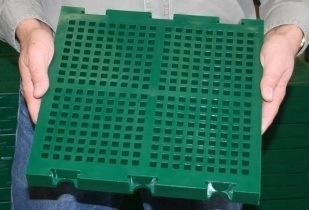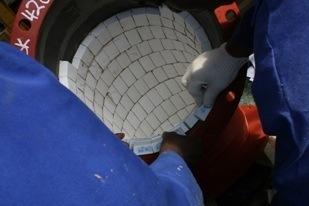The Multotec Group has begun implementing its maintenance contract covering Debswana’s Jwaneng mine, OLM process plants, Orapa No. 1 and No. 2 plants, Letlhakane mine treatment plant and Damtshaa mine in Botswana
The measures taken under the contract are designed to mitigate production delays, reduce costs, decrease ferrosilicon losses and increase efficiency across the board.
“Diminishing skills, coupled with an increased focus on specialised products, have led to a definite trend in the mining industry towards maintenance contracts,” said Derrick Alston, managing director of Multotec Manufacturing.
“It makes perfect financial and operational sense to optimise maintenance staff on a process plant and enable mine personnel to focus on the management of the mining operation."
“Multotec’s maintenance contract at Debswana is different from the norm, however, owing to the remoteness of its operations.
"Each of the plants must be overseen by maintenance crews with the necessary skills and expertise to conduct maintenance on a variety of equipment such as wear linings, screen panels, rubber scrubber liners, dense medium and hydrocyclones."
The maintenance contract has been designed on a fixed cost basis with an additional cent per ton variable portion, dependent on the tonnages being processed.
Multotec will maintain a stockholding of consumables on each site, eliminating the need for the mine to hold stock and resulting in an overall cost per ton reduction.
Alston described this as a win-win situation that reflected the most appropriate partnership approach with regard to the process plants.
Multotec maintenance crews are now permanently deployed on each mine and these multi-skilled teams undertake daily inspections of all equipment related to the contract.
These daily checks are carried out in conjunction with the use of the web-based Hawkeye monitoring programme that allows crews to accurately monitor the condition of equipment. For example, screen panel change-out can be predicted and dovetailed into pre-planned shutdowns to optimise the use of the process plant.
Complete dense medium cyclones are also changed out on the same basis. Multotec teams also install pre-prepared ceramic or rubber lined steel chute work, ceramic lagged conveyor pullets or conduct in-situ repairs in the diamond processing plants.
Initial maintenance started with Multotec wear linings and this includes the supply and installation of ceramic tiles and the re-engineering of chute systems to optimise materials transfer and minimise wear. This includes feed chutes, transfer points to conveyors, screen underpans and ceramic pulley lagging.
The next phase was to undertake the change-out of cyclones and Multotec has now taken over responsibility for cyclone inventory control.
 Cyclones are monitored using fixed benchmark parameters that allow for proactive condition monitoring and replacement of units to coincide with planned plant shutdowns.
Cyclones are monitored using fixed benchmark parameters that allow for proactive condition monitoring and replacement of units to coincide with planned plant shutdowns.
In addition, Multotec has replaced products at Letlhakane with its own latest generation cyclones and these are performing well in comparison.
“The fundamental objective of the maintenance contract is to avoid unscheduled shutdowns caused by breakdowns attributed to poor maintenance," said Alston.
"One of the most important aspects of this particular maintenance contract is the overall plant efficiency and optimisation of diamond and ferrosilicon recovery.”
More than 70 Multotec employees have been permanently deployed to implement maintenance across the Debswana operations, with a country manager reporting to Multotec's managing director responsible for Botswana operations.
The Multotec office in Gaborone provides support, underpinned by additional technical support from Multotec process engineers and product specialists based in South Africa.





















